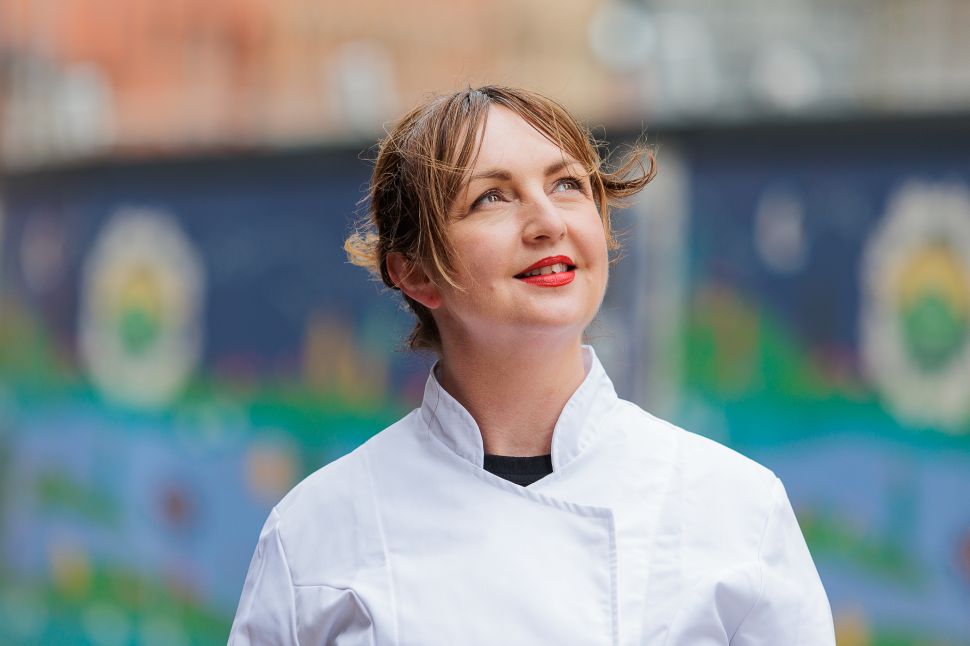 Mary-Ellen McTague. Jody Hartley
Mary-Ellen McTague. Jody Hartley
It’s not hyperbole to say that Mary-Ellen McTague has had a thriving culinary career. The chef spent several years working for Heston Blumenthal at his Michelin-starred eatery, Fat Duck, before returning to Manchester to helm her own restaurants, Aumbry and The Creameries. After The Creameries closed in 2022, McTague was approached by Treehouse Hotel, which planned to open a new property in Manchester. They were looking for a local chef to ensure the hotel felt connected to the community, and McTague’s sustainable ethos seemed like a good fit.
It wasn’t inevitable that she would ever open a restaurant inside a hotel, though. “It sounded really exciting, but I obviously looked into the brand,” McTague recalls, speaking from Treehouse Hotel Manchester, which debuted earlier this year. “I was actually really impressed by their commitment to sustainability. Anyone who works in hospitality and is conscious about things pertaining to sustainability knows it can be quite a wasteful industry. Over the years, I have developed a more and more sustainable approach to cooking in terms of the suppliers I use and the kitchen processes that help us reduce waste to the absolute minimum. This felt like an opportunity to roll that out to a bigger audience.”
McTague spent nearly a year developing the culinary concept for Treehouse Hotel Manchester. She is not only responsible for the lobby restaurant, Pip, but also for the meetings and events business in the hotel. “I wanted to just see: How far can you push that sustainability in a busy hotel operation? How possible is it to have that same approach? The answer is, it’s quite hard. But it’s a process. I felt like I might as well have a go at it.”
In Pip’s kitchen, McTague and her team take serious measures to focus on low waste. A head of cauliflower is used completely. If the leaves are nice, they’re trimmed off and added to the wilted seasonal greens. If they don’t look great on a plate, they’re toasted into an ash, which garnishes several dishes, including the yeast puff starter. The core becomes part of the pickle plate. The florets are incorporated into the cauliflower cheese side dish or blended into a puree.
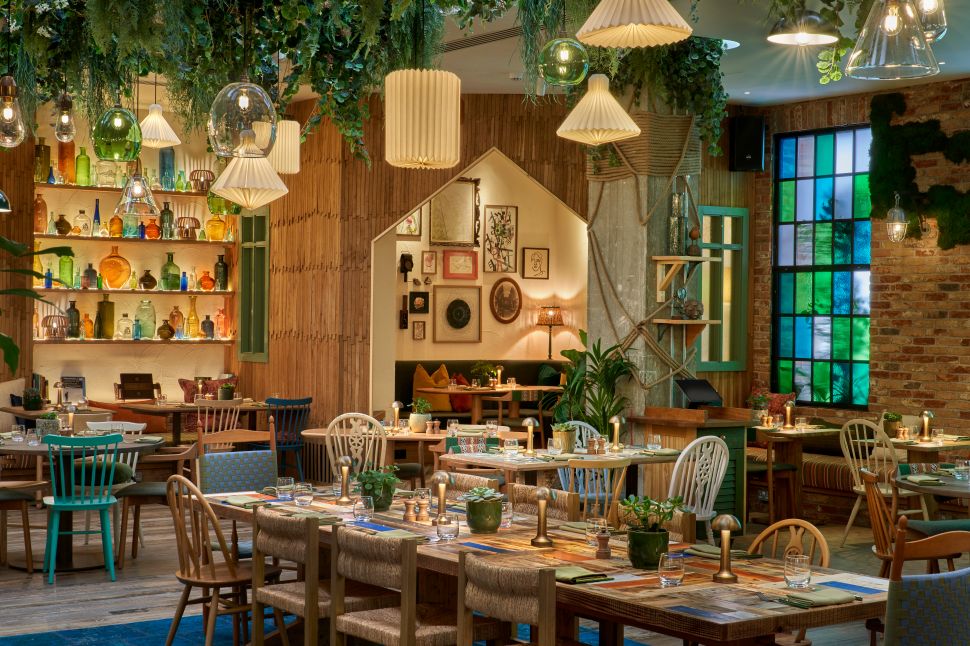
 Pip opened in Manchester earlier this year. Simon Brown
Pip opened in Manchester earlier this year. Simon Brown
“We get a lot out of every vegetable,” McTague explains. “A lot of chefs are used to working in a way where you decide your menu, and then you go and find the ingredients to service that menu. I’m looking at what ingredients are available, and then the menu is written with that in mind. But also, how are we not wasting stuff? How is it a dish that’s relevant to where we are in the world? How is it interesting? The part of the process I enjoy the most is drawing on all of those different threads.”
Although the menu at Pip is generally focused on British cuisine, McTague also wants it to feel like it’s a part of Manchester. The cheese gougères, a delish bite, are made with Old Winchester cheese, while the Lancashire hot pot, one of the main dishes, draws on local culinary tradition. Pip’s menu also features a venison pudding and a crab and lobster Thermidor pie—both hearty, savory dishes that are beloved in the north west of England.
“I’ve been making puddings, pies and hot pots for a long time,” she says. “These dishes are a combination of food history, local ingredients and things that were nostalgic to me growing up in Bury.”
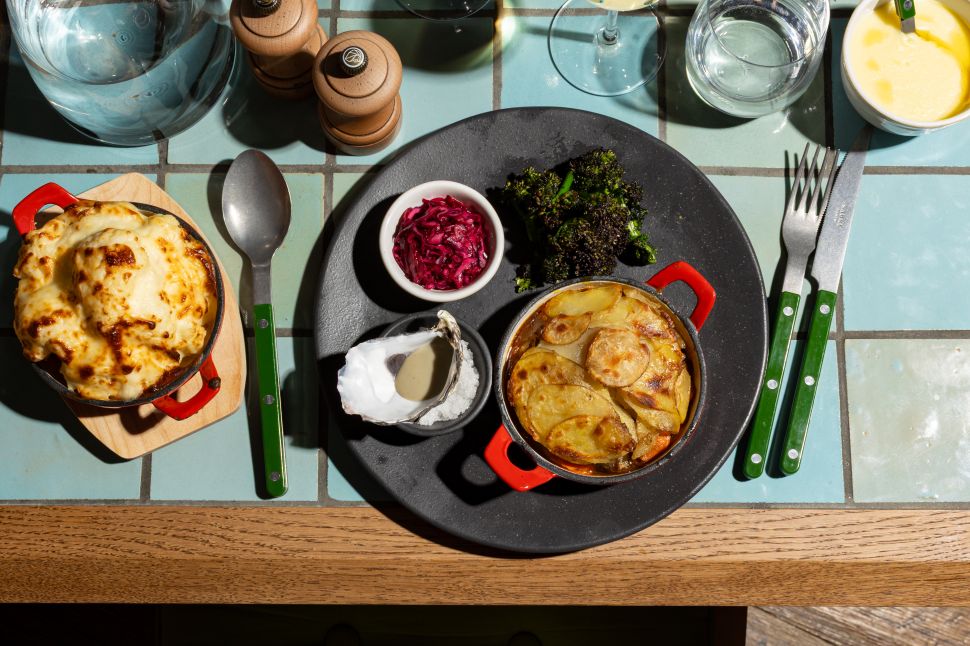
 The Lancashire hot pot draws on local culinary tradition. Courtesy Memphis Medium
The Lancashire hot pot draws on local culinary tradition. Courtesy Memphis Medium
Pudding, in particular, draws on British tradition. It’s like a savory pie, with the braised meat encased in pastry dough and baked. For McTague, it’s yet another way to use everything. “Suet pudding is a brilliant one, because when you do whole animal butchery, you have a lot of cuts that are only really suitable for braising, and then you’ve got the bone and the fat,” she says. “With the suet puddings, we can keep all the fat that comes off the bones when we’re making the stocks, freeze it and use that as the fat in the suet pudding.”
Whole animal butchery is an important aspect of McTague’s sustainable approach. The venison for the pudding comes from nearby Lyme Park, where the animals are culled as part of herd management. Pip’s butcher collects the deer, which would otherwise go to waste, and butchers them for McTague and her team. “We get our hands on this amazing product, but it also feels like the right way to be using meat,” she notes. “[Our butcher’s] mission is to try and make it doable for restaurants and chefs to use the whole animal, even if there’s a lack of space in the kitchen to butcher it there.”
McTague’s enthusiasm for less waste has been infectious. Although it takes extra effort to plan out how to use every aspect of an ingredient, she feels it’s a joyful way to cook. “The team has started to contribute ideas about reducing waste,” she says. “The production team started making ricotta from the spent milk from the frothing milk for coffee. And it’s excellent. Now we’ve got ricotta dumplings in our squash soup dish. So it is working. It means that the whole team, if they’re engaged enough to do so, are able to contribute their own methods.”
Although no-waste cooking is becoming increasingly trendy, McTague has been interested in sustainable approaches for decades. After leaving Fat Duck in 2006 to open her own restaurant, she began to consider that high-end dining wasn’t as conscious as it could be. “Something in me twigged a little bit,” she remembers. “In a three-Michelin-starred place, every single thing on every plate has to be completely perfect. So if you’re only using what’s perfect, it means you’re also not using other stuff.”
She joined the Sustainable Restaurant Association and became aware of Douglas McMaster’s efforts at Silo, a zero-waste restaurant. She spent a year as the head chef of The Real Junk Food Project, which rescues food destined for the bin from supermarket delivery services. “I learned loads about food waste and I was just totally gobsmacked,” she says. “At the time, it was something like 25 percent of all the food that’s grown in this country went in the bin. Supermarkets were literally throwing things into landfills because it was cheaper than putting it back on the shelves. It really opened my eyes to where we were at.”
She adds that it became “very important to me to make sure that when I was operating in a restaurant that can be the source of a lot of food waste, that I was doing it in as responsible a way as possible.”
For McTague, that’s part of the hotel’s appeal. “They’re a huge, global company. And maybe if it works in one of the sites, they might think about spreading that over other sites,” she says.
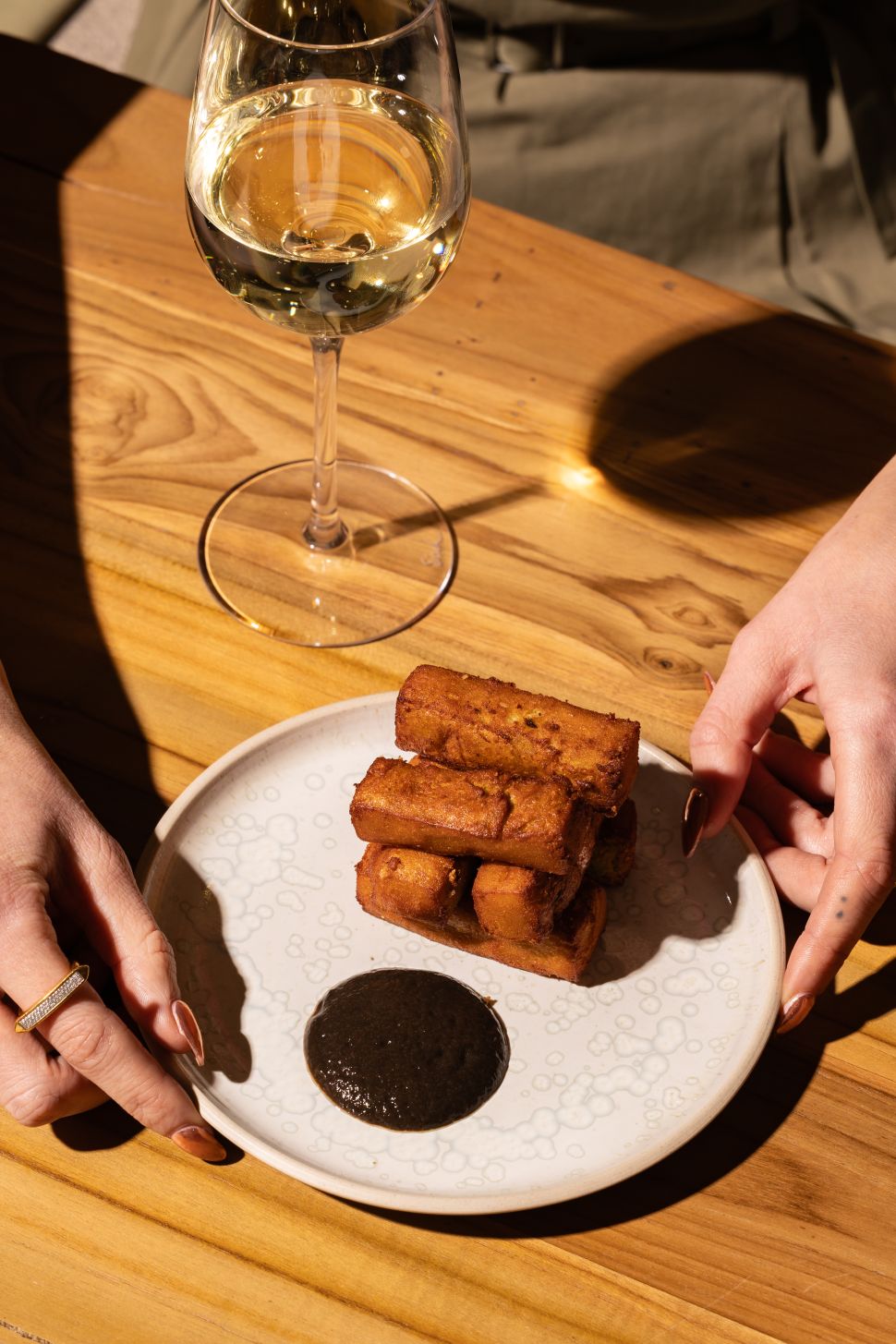
 Split pea chips with mushroom ketchup. Courtesy Memphis Medium
Split pea chips with mushroom ketchup. Courtesy Memphis Medium
Of course, being sustainable can’t override the taste of the actual food. At Pip, McTague ensures a balance between consciousness in the kitchen and flavor. The restaurant feels casual, yet offers thoughtful and attentive service, along with a nature-inspired atmosphere that is well-suited for a quiet evening. She’s included long-time favorite dishes like split pea chips with mushroom ketchup, which have appeared on her past restaurant menus, alongside new creations. On Sundays, there’s a roast menu—a tradition in England—although McTague’s version is more refined than that in the corner pub. Desserts are creative, with a hint of history. (The treacle tart is an especially delicious finisher.)
“Despite everything else I’ve said, the main thing about a dish is that it looks and tastes great,” McTague acknowledges. “You want it to be a treat. You want to be able to come into a restaurant and think, ‘What a lovely time I’ve had.’ That’s the point of it. I don’t want the food to look or feel like it’s anything less for the processes that have created it.”
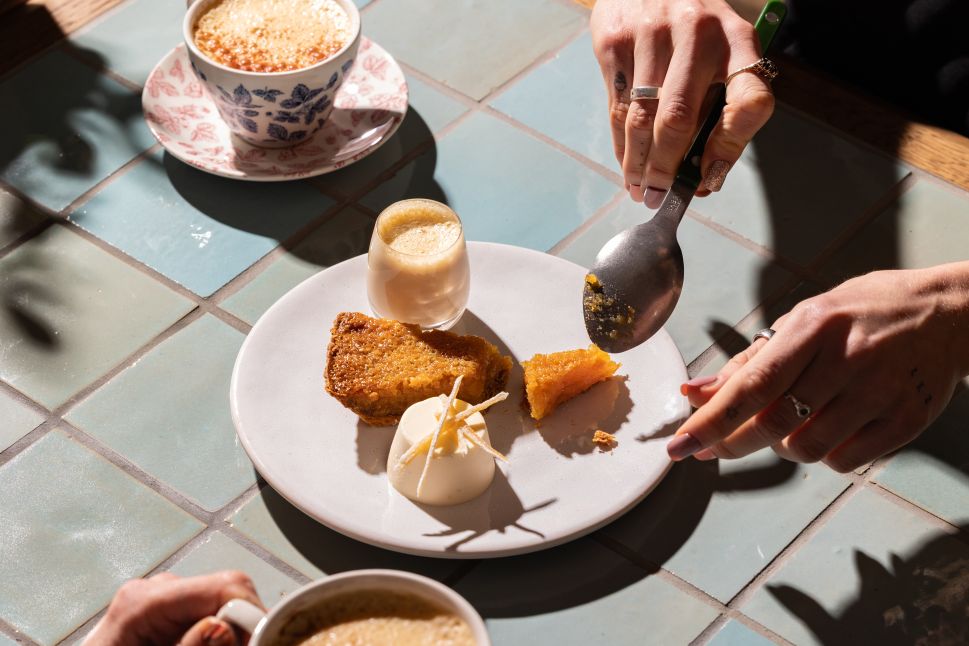
 Pip’s treacle tart. Courtesy Memphis Medium
Pip’s treacle tart. Courtesy Memphis Medium
McTague is a co-founder of Eat Well MCR, a charity organization she helped to start during the pandemic. It’s another example of something in McTague’s career inspired by food waste. When the pandemic hit in March 2020, she was helming The Creameries, which had freezers and fridges stocked full of food. “I couldn’t throw it in the bin,” she recalls. “And then I was like, ‘If I’m having to do that, everyone’s having to do that, and we can’t do that. We need to cook it and do something with it.’”
Instead of throwing it away, McTague used it to cook meals for those in need. “A local charity, Back on Track, called me and they were like, ‘Can you get 70 meals to a hotel in Gorton this evening?’” she says. “I was like, ‘Actually, yes, I can.’ That was the start of Eat Well. We did a couple of shout-outs on social media to ask anyone having to close their restaurant if they had food they didn’t know what to do with. And loads of people did.”
With the help of two friends, Gemma Saunders and Kathleen O’Connor, McTague grew Eat Well into a thriving organization that takes home-cooked meals to people without access to good food. “We were delivering regularly to women’s refuges and food banks and schools with vulnerable families and parents of kids in long-term hospital stays,” she says. “It grew organically from there. It opened our eyes to something that wasn’t going to go away. We weren’t like, ‘Well, Covid will be over and then everything will be fine.’ The people we were taking meals to were not going to be fine. It felt like it was still needed.”
Today, Eat Well MCR cooks around 2,000 meals per month. Their guiding principle is “quality over quantity.” McTague wants the food to feel like “something my mum made” and to “extend a moment of respite and a bit of something nice on a not nice day.” For the chef, it’s “about the joy of food rather than it is necessarily ticking boxes nutritionally.”
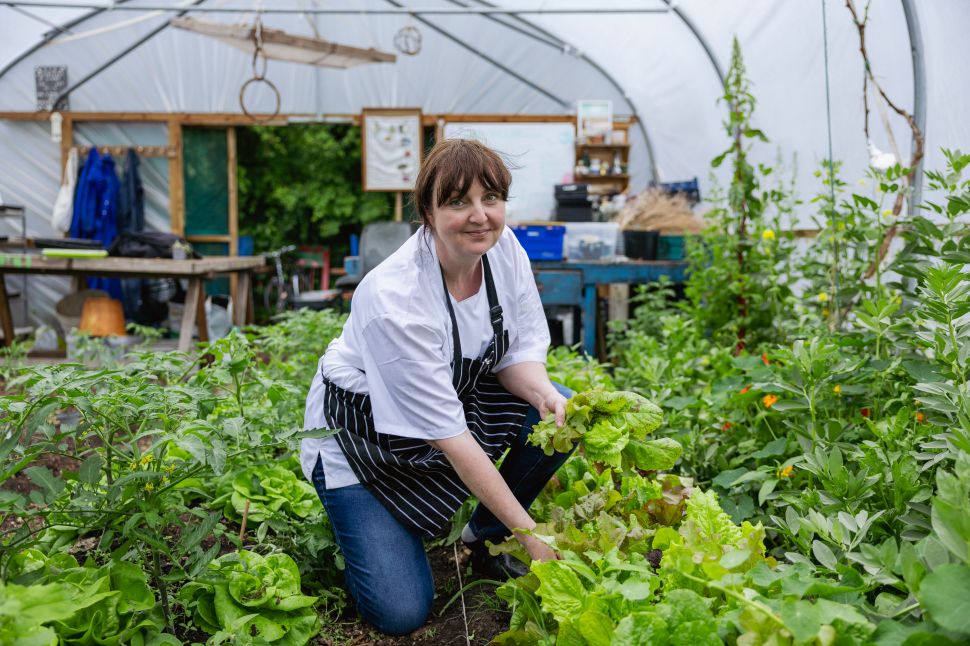
 McTague describes herself as a “massive hippie at heart.” Rebecca Lupton
McTague describes herself as a “massive hippie at heart.” Rebecca Lupton
McTague describes Eat Well as one of the two joys of her life, alongside her children. She points out that chefs aren’t typically paid particularly high salaries, and, in fact, many of them can’t afford to eat in the restaurants where they work. Giving back is something she does because it feels right, not because there’s any obligation to do so.
“A lot of us come from working-class backgrounds or not particularly privileged backgrounds,” she says. “So when we started Eat Well, it really resonated with so many people because they could do a thing where they were making a nice meal, and they could extend hospitality to people who needed it. Those of us in hospitality certainly don’t do it for the money. It’s about that desire to take care of people and to show them a nice time. Being able to do that beyond the walls of your restaurant and out into the community feels really powerful and really good.”
McTague admits that she’s “just a massive hippie at heart,” but it’s yielded positive results, both in her career and overall. “I’m so lucky I get to work in this industry, but I also get to do what feels like the right thing in the world,” she says. “Not a lot of people get to.”

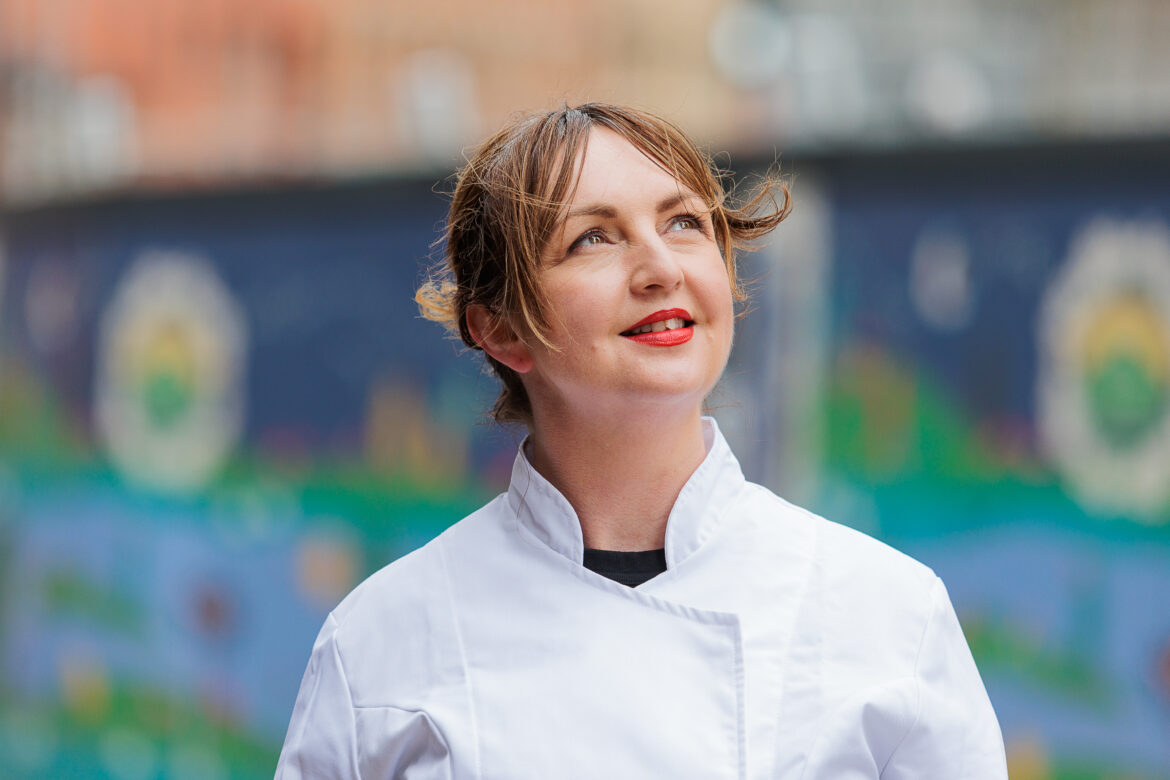
Dining and Cooking